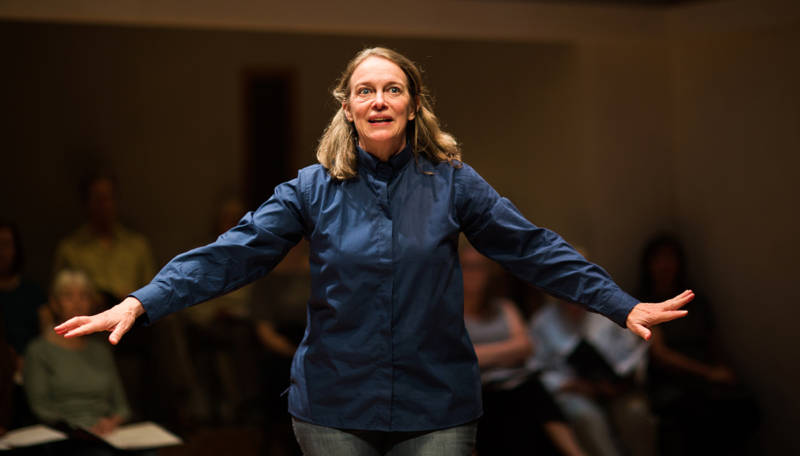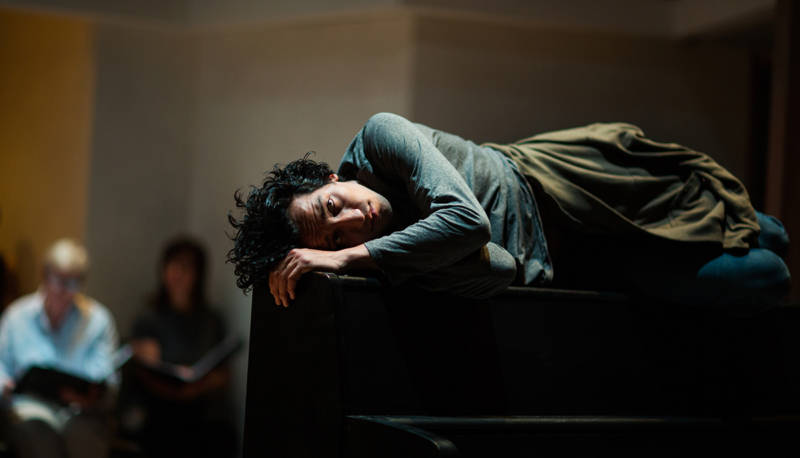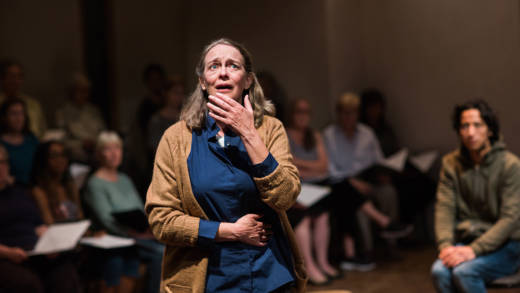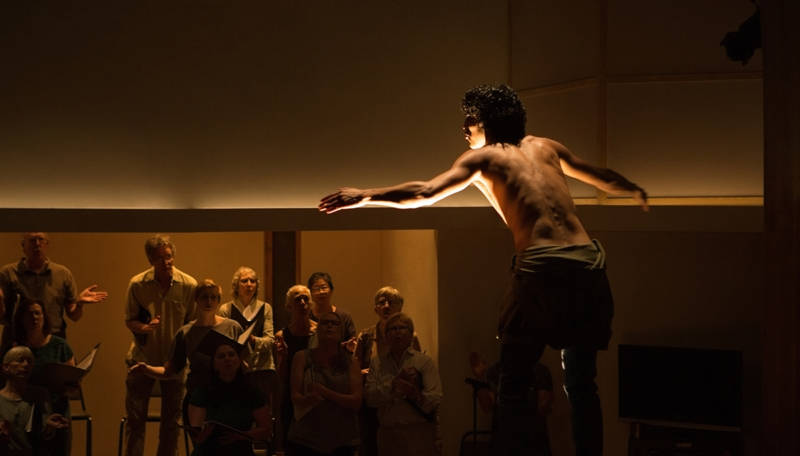By the end of David Greig’s The Events under Susannah Martin’s superb direction for Shotgun Players, I wondered about just what kind of achievement I had witnessed. Some moments soared in odd and surprising ways, while others weren’t quite credible, though never to the detriment of what turned out to be a strange and special evening. In the age of President Donald Trump and an ascendant and revolutionary right, here was a full-throated liberal plea for a different world and most definitely a different theater.

That the show begins with a song sung by a local community choir (apparently every performance features a different group) is the first of The Events’ many beauties. At opening night, the Gallimaufry Chamber Chorus milled about, clutching their scores, and drinking coffee. I almost walked on stage to join them, thinking it was a pre-performance audience mixer. So even before The Events begin we’re thrust into a disorienting realism.
When the choristers begin to sing, you can’t help but feel the church the Ashby Stage once was coming back to life. Without espousing or demanding belief, Greig reorders the theater-going experience. We aren’t just watching a play, but also taking on the roles of witness and congregant. It’s what will make the ripped-from-the-headlines tragedy of a young man’s mass shooting of an immigrant chorus bearable and worthy of our attention. There’s not one moment of the sensational.
And so the play doesn’t so much start but instead comes to life. We instantly become acutely aware of space and physical relations. Choir members tend to bunch together, and so we naturally notice who is outside the group, outside the sphere of music. Claire (Julia McNeal), the parish priest who leads the choir, sits behind the singers listening with pride and appreciation, and a young man — called “the boy” in the play (Caleb Cabrera) — stands in the shadows of the auditorium, just off stage.

There is a wonderful geometry here: the guardian priest and the killer boy, both hovering on the edge of the community. In one of the play’s stinging ironies, it is Claire, playing the protector, who invites the killer into the sanctuary. And the actor who plays the boy plays everyone else in Claire’s life — her psychologist, her lover Catriona, the boy’s drunken father, a new age shaman she hires for a healing ceremony, a far-right politician — which twists the knot of pain even tighter.




